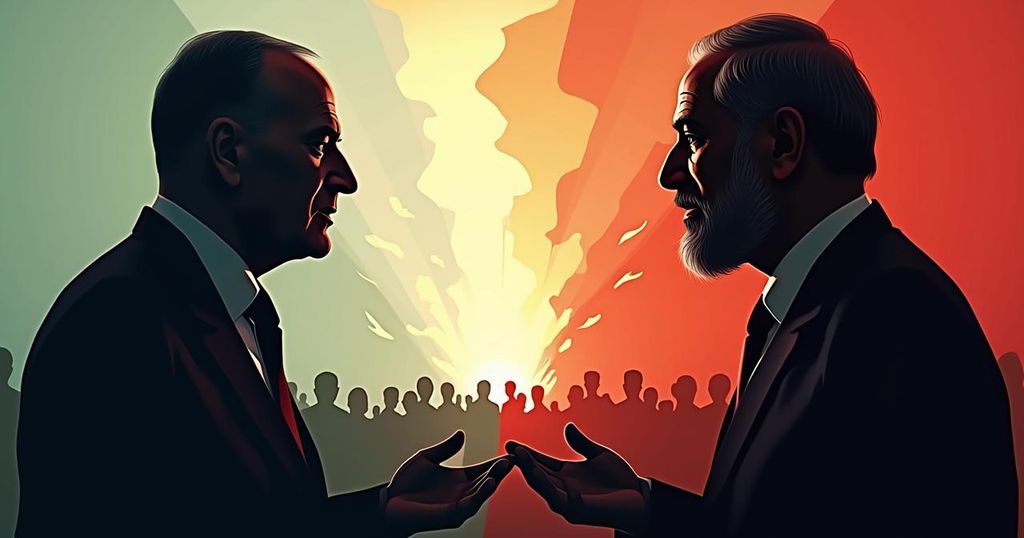The Israel-Iran Conflict: A Political Quandary for Vice President Harris
The escalating Israel-Iran conflict has prompted political challenges for Vice President Kamala Harris as she navigates the 2024 election campaign. With missile attacks from Iran complicating her position, she must carefully manage the perceptions of undecided voters regarding her administration’s leadership amid global unrest. The recent vice-presidential debate highlighted these tensions, overshadowing campaign messaging with urgent international crises.
The recent escalation of hostilities between Israel and Iran has placed Vice President Kamala Harris in a precarious political position as she approaches the final stages of the 2024 election campaign. Six months prior, both President Biden and Vice President Harris sought to navigate the complexities of the ongoing conflict in Gaza, wrestling with the demands of their party’s left wing for a more stringent response against Israel and the urgent appeals from moderate constituents to maintain unwavering support for the nation. The current situation, however, has devolved into a flare-up of military aggression that could jeopardize Harris’s electoral prospects. As Israel faces missile attacks from Iran, which have surged over Tel Aviv, former President Donald Trump’s narrative that the global landscape is in disarray gains traction, further complicating Harris’s campaign strategy. The Vice President must now grapple with the implications of the conflict, hoping fervently that the situation does not resonate with undecided voters, potentially entrenching the belief that the administration’s leadership is inadequate amid escalating global tensions. During the vice-presidential debate, which should have been a pivotal moment for Harris, the discussion was overshadowed by dramatic images of Iran’s missile assaults. Prime Minister Netanyahu’s response — a promise of retaliation stating, “Iran made a big mistake, and it will pay for it” — cast directly over her remarks where she denounced Iran as a “destabilizing, dangerous force in the Middle East.” Governor Tim Walz of Minnesota emphasized the pressing need for “steady leadership” at this turbulent juncture, contrasting the steady governance required with Trump’s focus on domestic trivialities, stating, “A nearly 80-year-old Donald Trump talking about crowd sizes is not what we need in this moment.” With rapidly changing geopolitical dynamics and increased scrutiny from both sides of the political spectrum, Harris’s ability to assertively articulate a position that resonates with voters could prove critical as she navigates the impending election.
The article discusses the implications of the ongoing conflict between Israel and Iran during the political climate leading up to the 2024 U.S. presidential elections. The heightened tensions, characterized by missile firings and military rhetoric, pose significant challenges for the Biden-Harris administration, which is attempting to balance demands for support for Israel with the diverse opinions of American voters. The article highlights the political ramifications of foreign policy on domestic campaigns, especially in light of past leadership during global crises.
The escalating conflict in the Middle East complicates the Biden-Harris administration’s political landscape as they approach the 2024 election. Vice President Harris’s ability to address these growing tensions while reinforcing confidence in their leadership may be vital for her campaign. The juxtaposition of her approach with the narrative presented by former President Trump demonstrates the stark contrasts in political ideologies that are currently shaping voter perceptions in an increasingly volatile international environment.
Original Source: www.nytimes.com




Post Comment